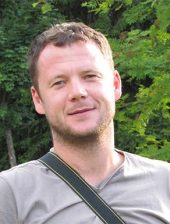In the Section of Animal Physiology and Ethology, we are involved in the study of animal behavior and sensory systems (sensory receptors). Some predatory insects recognize their prey based on vibration signals produced when walking on the ground. Others recognize a sexual partner based on vibrational songs. We are interested in the mechanisms of transmission, translation and reception of signals that are important for prey and sexual partner identification. In the context of the above mentioned communication, we study the structure and function of insect sensory and scolopidial organs. Recent studies have focused on the ecophysiological and biophysical properties of signals and the communication channel through which signals are translated. We are also interested in comparing the predatory behavior of antlion larvae (Myrmelontidae) of different species and the effects of biotic and abiotic factors on their behavior. We also focus on interactions between larvae of different species of antlions. Predatory behavior and sensory systems are the topics of master and diploma theses.
We work closely with the Vivarium under the direction of Senior Associate Bojana Mencinger Vračko. In the Vivarium we maintain and cultivate various organisms used in subjects such as Ethology, Animal Physiology, Animal Ecophysiology, and Systematics and Phylogeny of invertebrates. We observe and study the morphology of animals, their behavior, and other characteristics.
Educational and research work takes place in four laboratories:
Laboratory for Animal Physisology
Our research focuses on the sensory systems of insects. Model organisms in our research are antlion larvae. We study the mechanisms of detection of vibrational signals produced by prey of antlion larvae, predatory response to these signals, localization of prey, and the influence of substrate on the transmission of vibrational signals between prey and predator. We also study the ecophysiology of selected beetle species, especially bark beetles. We attempt to analyze the abiotic factors that influence the development, host colonization, and microhabitat selection of Ips typographus.
Laboratory for Ethology
The model organism for the study of behavior are the larvae of antlions. We study behavioral patterns during predation and interaction within and between species. We focus on the analysis of behavior and its changes as a function of biotic and abiotic factors in the environment in both antlions and beetles.
Laboratory for Microscopy
We study the morphology and functional structure of various invertebrates and vertebrates. We also study the digestion of selected predatory and phytophagous insects.
Laboratory for Hystology
We study the structural characteristics of the gastrointestinal tract and excretion of selected species of invertebrates that overwinter in hypogean habitats. We are interested in the mechanisms that allow specimens to survive during several months of starvation. The tissue is studied using histological and histochemical methods and analyzed by light microscopy and transmission electron microscopy.
Single-major master’s study programme BIOLOGY AND ECOLOGY WITH NATURE CONSERVATION
In the postgraduate programme “Biology and Ecology with Nature Conservation” the candidate will acquire knowledge, working methods and skills for the analytical treatment of complex systems in biology and ecology, from the molecular and cellular level to the level of populations, habitats, ecosystems and biomes. During the course of study, the student will become familiar with modern methods of scientific research in biology, ecology and nature conservation and the complexity of biotic systems. The student will have the opportunity to participate in research and program groups, but may also be involved in professional work in a variety of areas covered by members of the Biology Department and outside collaborators. The student will acquire skills for solving research problems independently and for applying biological knowledge in practice. The professionals thus trained will be able to contribute significantly to the appropriate assessment of the impact of interventions in the environment, to the evaluation of biodiversity in a given area, to the maintenance of a healthy natural and healthy working and living environment, to the study and control of plant and other pests. These objectives thus correspond to current social needs dictated by integration into the European area and are in line with the guidelines to which the Republic of Slovenia committed itself when it signed the international conventions on the wise use of the natural heritage of our planet.
Head of the study programme: Full Professor Dušan Devetak
Coordinator: Assistant Professor Vesna Klokočovnik
Our research focuses on the sensory systems of insects. Model organisms in our research are antlion larvae. We study the mechanisms of detection of vibrational signals produced by prey of antlion larvae, predatory response to these signals, localization of prey, and the influence of substrate on the transmission of vibrational signals between prey and predator. We also study the ecophysiology of selected beetle species, especially bark beetles. We attempt to analyze the abiotic factors that influence the development, host colonization, and microhabitat selection of Ips typographus.
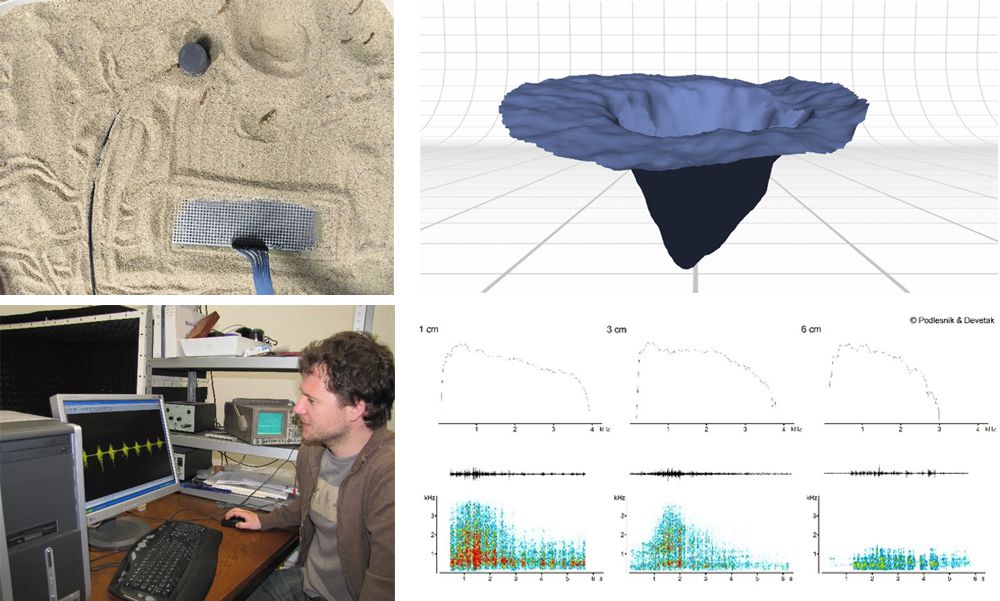
The model organism for the study of behavior are the larvae of antlions. We study behavioral patterns during predation and interaction within and between species. We focus on the analysis of behavior and its changes as a function of biotic and abiotic factors in the environment in both antlions and beetles.
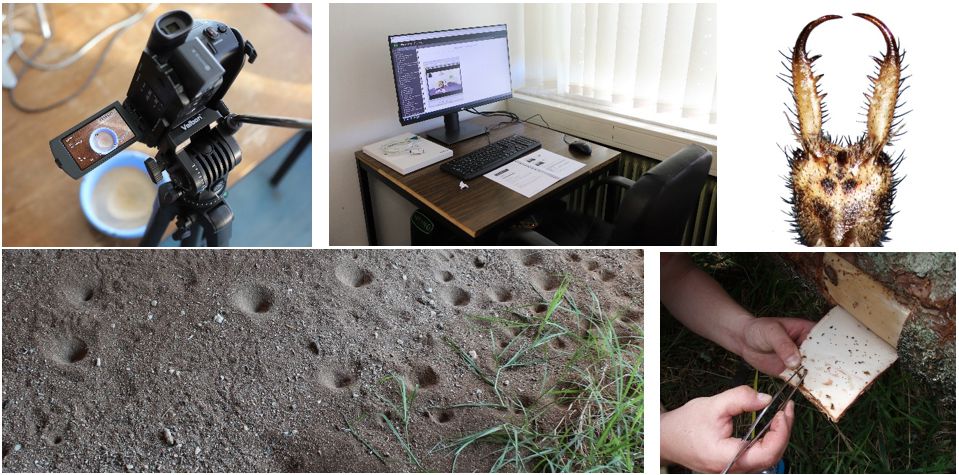
Vodja: doc. dr. Jan Podlesnik
We study the morphology and functional structure of various invertebrates and vertebrates. We also study the digestion of selected predatory and phytophagous insects.
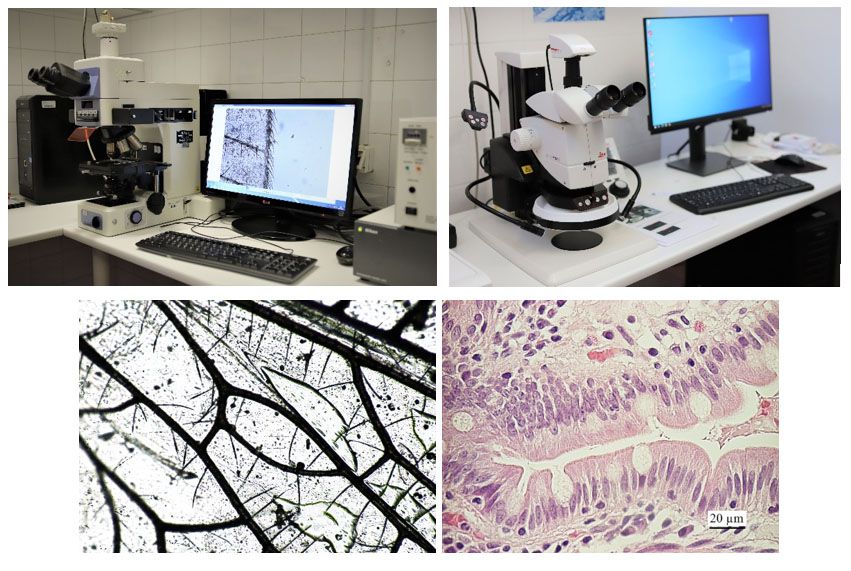
We study the structural characteristics of the gastrointestinal tract and excretion of selected species of invertebrates that overwinter in hypogean habitats. We are interested in the mechanisms that allow specimens to survive during several months of starvation. The tissue is studied using histological and histochemical methods and analyzed by light microscopy and transmission electron microscopy.
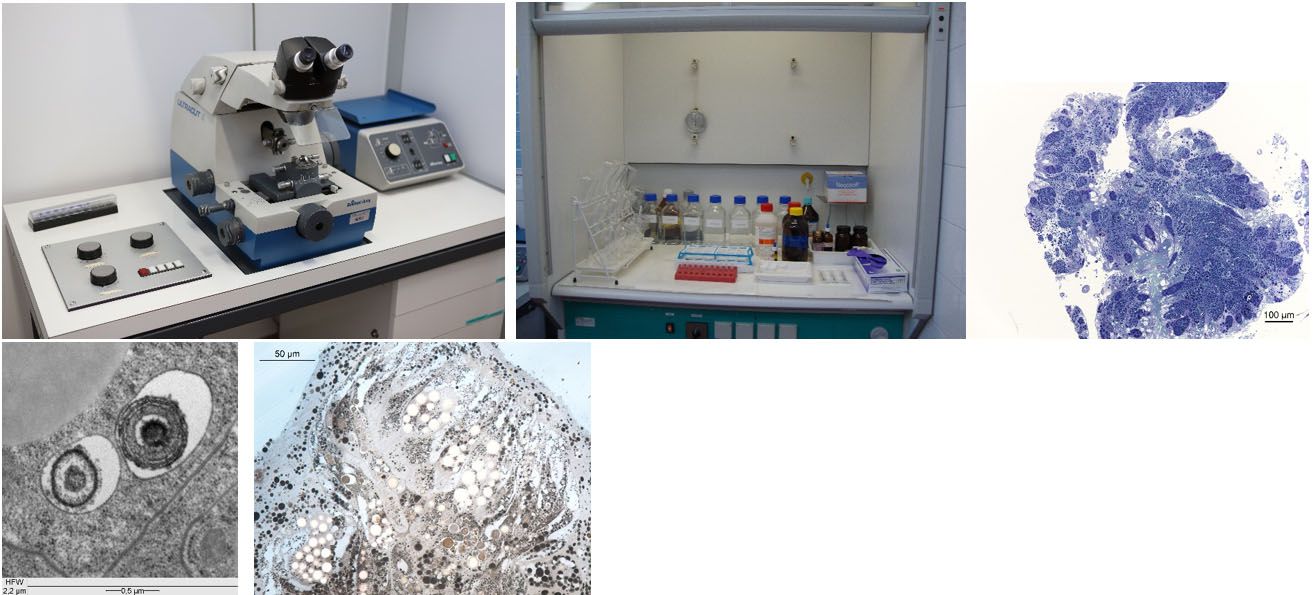

- Sicris
- RG



